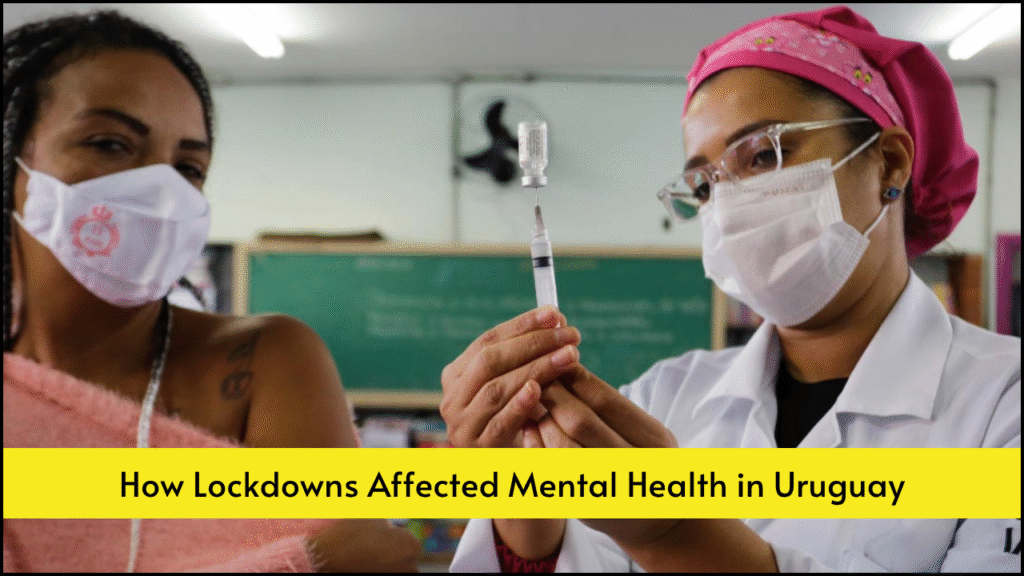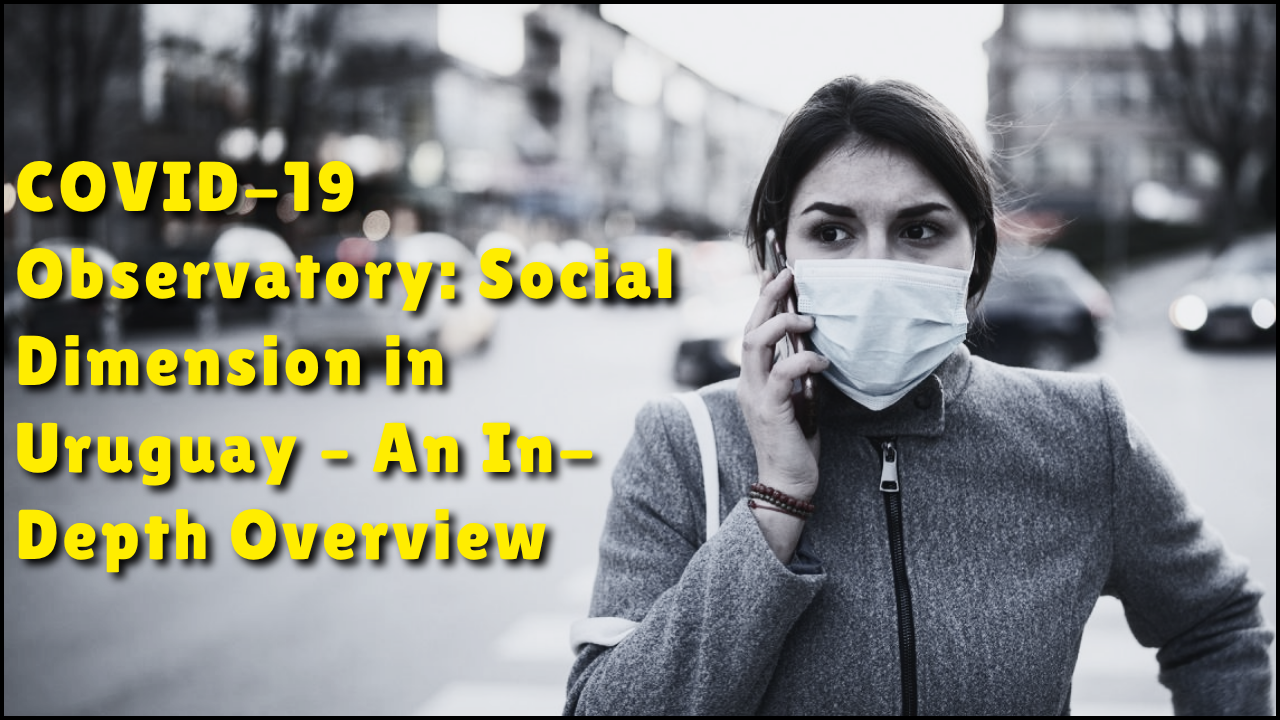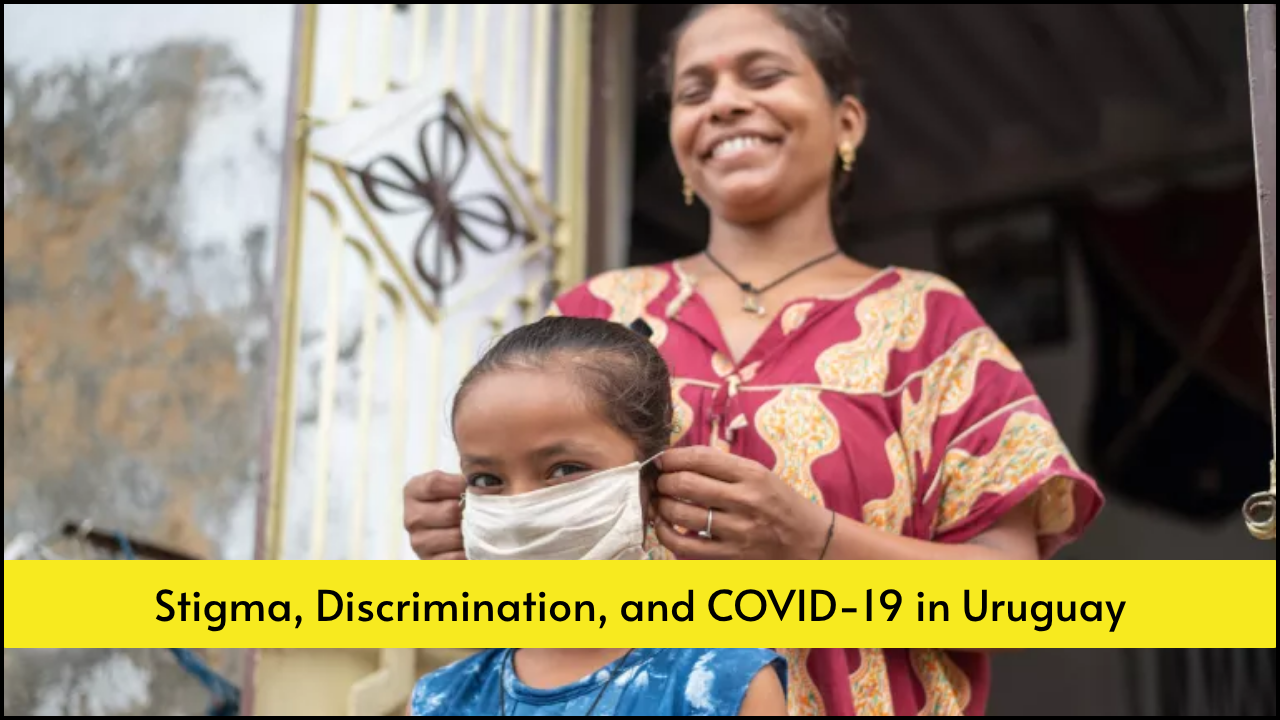
Government-imposed lockdowns during the COVID-19 pandemic had an enormous psychological impact worldwide. Uruguay, although praised for its early management of the pandemic, still experienced significant mental health consequences due to social isolation, economic uncertainty, and the disruption of everyday routines. This article explores how lockdowns specifically affected the mental health of Uruguayans through unique, locally informed insights, statistics, and structured points.
Table of Contents
Social Isolation and Emotional Disconnect
- Urban loneliness increased: Montevideo residents, particularly the elderly and single adults, experienced growing loneliness as family visits and social gatherings were prohibited.
- Youth felt disconnected: Teenagers and young adults in Uruguay reported a decline in emotional well-being due to the closure of schools, universities, and public spaces.
- Elderly mental health deteriorated: Elderly citizens, particularly in rural towns like Tacuarembó or Rivera, became more vulnerable to depression due to separation from family caregivers.
- Community programs halted: Local clubs, art groups, and religious meetings that typically offered social support were suspended, removing essential mental health buffers.
Economic Strain and Financial Insecurity
- Job losses intensified anxiety: Workers in hospitality, tourism, and informal sectors suffered job losses, increasing stress levels, especially in Punta del Este and Colonia, where seasonal employment is common.
- Small businesses faced closure: Owners of small businesses struggled to stay afloat, causing rising cases of sleeplessness and emotional fatigue.
- Delayed government relief: Financial aid programs like “Plan de Emergencia” provided help, but bureaucratic delays led to uncertainty and increased psychological pressure.
- Women faced dual burdens: Female workers, particularly in single-income households, bore the brunt of job loss and caregiving responsibilities, leading to burnout.
Educational Interruptions and Youth Anxiety
- Remote learning created stress: Students in state-run schools faced difficulties adjusting to virtual education, increasing anxiety levels due to poor internet access, especially in interior regions like Artigas.
- University students experienced disconnection: Higher education learners felt a lack of motivation and social pressure without face-to-face interaction, affecting academic performance and emotional balance.
- Increased dropout rates: Some students left school permanently due to economic hardship, further affecting their mental outlook.
- Parents under stress: Parents struggled to assist their children with schoolwork, adding to household tension.
Healthcare System and Psychological Services
- Public health centers were overwhelmed: Mental health services at mutualistas and public hospitals saw increased demand but lacked staffing capacity.
- Online counseling gained popularity: NGOs like Salud Mental Uruguay offered online therapy, which helped bridge access gaps during strict lockdowns.
- Lack of rural access to care: Residents in departments like Cerro Largo and Lavalleja had fewer psychological services, making it hard to manage emerging mental health issues.
- Mental health awareness improved: Media and public discourse began to address depression and anxiety, reducing stigma around seeking help.
Family Dynamics and Domestic Struggles
- Domestic violence increased: Reports of gender-based violence surged during lockdown, prompting government hotlines like 0800 4141 to see spikes in calls.
- Tensions rose in shared spaces: Extended confinement led to arguments and emotional tension in multigenerational households, especially in economically stressed neighborhoods.
- Children witnessed stress: Younger children displayed behavioral changes such as irritability, trouble sleeping, and emotional withdrawal.
- Loss of personal space affected well-being: Individuals living in small apartments lacked privacy, increasing claustrophobia and emotional fatigue.
Community and Coping Mechanisms
- Solidarity networks emerged: Community kitchens (ollas populares) not only provided food but also fostered psychological support through shared hardship.
- Art and music offered relief: Local artists in Montevideo and Canelones streamed concerts and virtual exhibitions, providing mental relief to audiences.
- Exercise and nature encouraged: Relaxation of restrictions allowed for outdoor activity, particularly along La Rambla, contributing positively to emotional regulation.
- Online communities expanded: Social media and messaging apps helped Uruguayans maintain personal connections and express emotional struggles openly.
Statistical Overview of Mental Health Effects in Uruguay
| Aspect | Data/Observation |
|---|---|
| Increased depression cases | Mental health consultations rose by 35% in 2020–2021 |
| Hotline usage | Calls to emotional support services doubled during the peak lockdown |
| Youth anxiety reports | 6 in 10 university students reported anxiety in a national survey |
| Domestic violence reports | Up 27% in the first six months of lockdown |
| Online therapy sessions | Grew by over 50% from April 2020 to March 2021 |
| Employment-related stress | 1 in 3 Uruguayans cited job insecurity as a major mental stressor |
| Suicide prevention efforts | Hotline 0800 0767 saw expanded use during 2021 |
| Rural vs urban care gap | Urban areas had 3x more access to mental health professionals |
Mental Health Support Initiatives During and After Lockdowns
| Initiative | Description |
|---|---|
| Plan de Salud Mental COVID-19 | Government-led response to offer telehealth and community mental services |
| INJU Support for Youth | Uruguayan Youth Institute provided emotional support programs online |
| OSE Emotional Helpline | State utility OSE opened a support line for employees and their families |
| UN Women Uruguay Support | Targeted mental health and safety measures for women affected by violence |
| Mobile Psychological Units | Deployed to remote regions in 2021 for free consultations |
| School Reopening Mental Training | Teachers received training to identify student distress when schools reopened |
Unique Observations from Uruguay’s Lockdown Period
- Trust in public health improved compliance: Uruguay’s population showed high levels of civic cooperation, but this also created internal pressure not to express emotional struggles openly.
- Middle-class distress was underreported: Many middle-income Uruguayans did not seek help out of pride, contributing to invisible emotional distress.
- The digital divide affected therapy access: Older adults and rural citizens without digital literacy were unable to benefit from online counseling options.
- Resilience grew from collective memory: Cultural memory of overcoming past economic crises helped some Uruguayans frame lockdowns as another challenge to endure.
End Notes
Lockdowns in Uruguay, though implemented to protect physical health, carried deep and lasting mental health consequences. Emotional strain affected nearly all demographics, from students and the elderly to business owners and parents. However, Uruguay’s strong civic solidarity, community action, and emerging mental health initiatives softened the overall impact. Continued investment in accessible, stigma-free mental health support is essential to repair the psychological aftershocks that the pandemic era has left behind.





